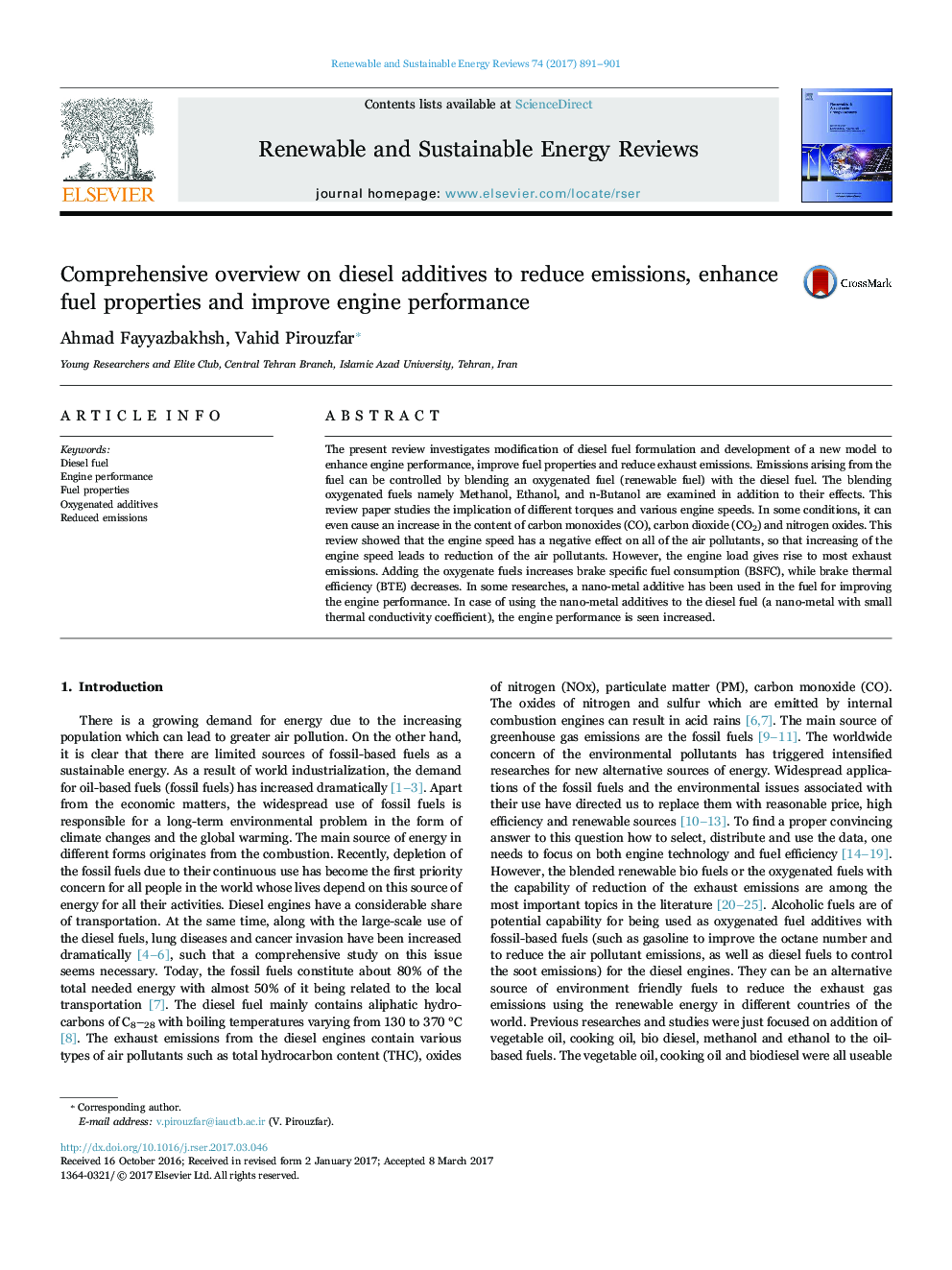| Article ID | Journal | Published Year | Pages | File Type |
|---|---|---|---|---|
| 5483165 | Renewable and Sustainable Energy Reviews | 2017 | 11 Pages |
Abstract
The present review investigates modification of diesel fuel formulation and development of a new model to enhance engine performance, improve fuel properties and reduce exhaust emissions. Emissions arising from the fuel can be controlled by blending an oxygenated fuel (renewable fuel) with the diesel fuel. The blending oxygenated fuels namely Methanol, Ethanol, and n-Butanol are examined in addition to their effects. This review paper studies the implication of different torques and various engine speeds. In some conditions, it can even cause an increase in the content of carbon monoxides (CO), carbon dioxide (CO2) and nitrogen oxides. This review showed that the engine speed has a negative effect on all of the air pollutants, so that increasing of the engine speed leads to reduction of the air pollutants. However, the engine load gives rise to most exhaust emissions. Adding the oxygenate fuels increases brake specific fuel consumption (BSFC), while brake thermal efficiency (BTE) decreases. In some researches, a nano-metal additive has been used in the fuel for improving the engine performance. In case of using the nano-metal additives to the diesel fuel (a nano-metal with small thermal conductivity coefficient), the engine performance is seen increased.
Related Topics
Physical Sciences and Engineering
Energy
Renewable Energy, Sustainability and the Environment
Authors
Ahmad Fayyazbakhsh, Vahid Pirouzfar,
